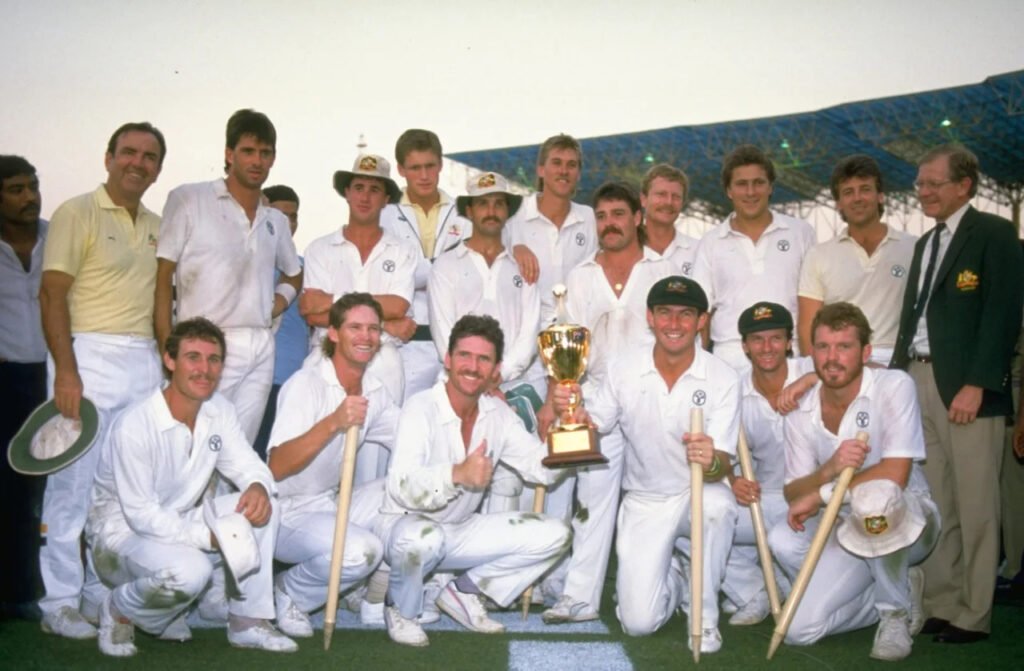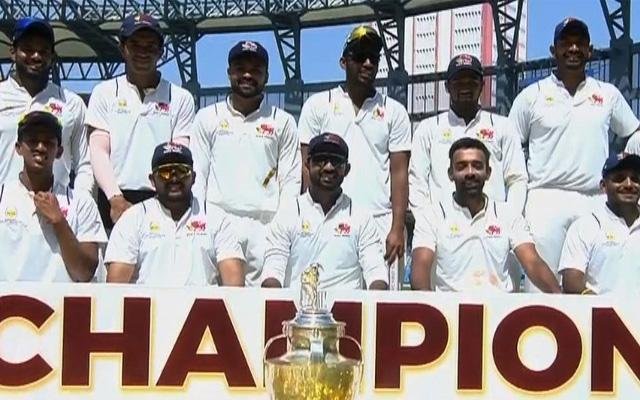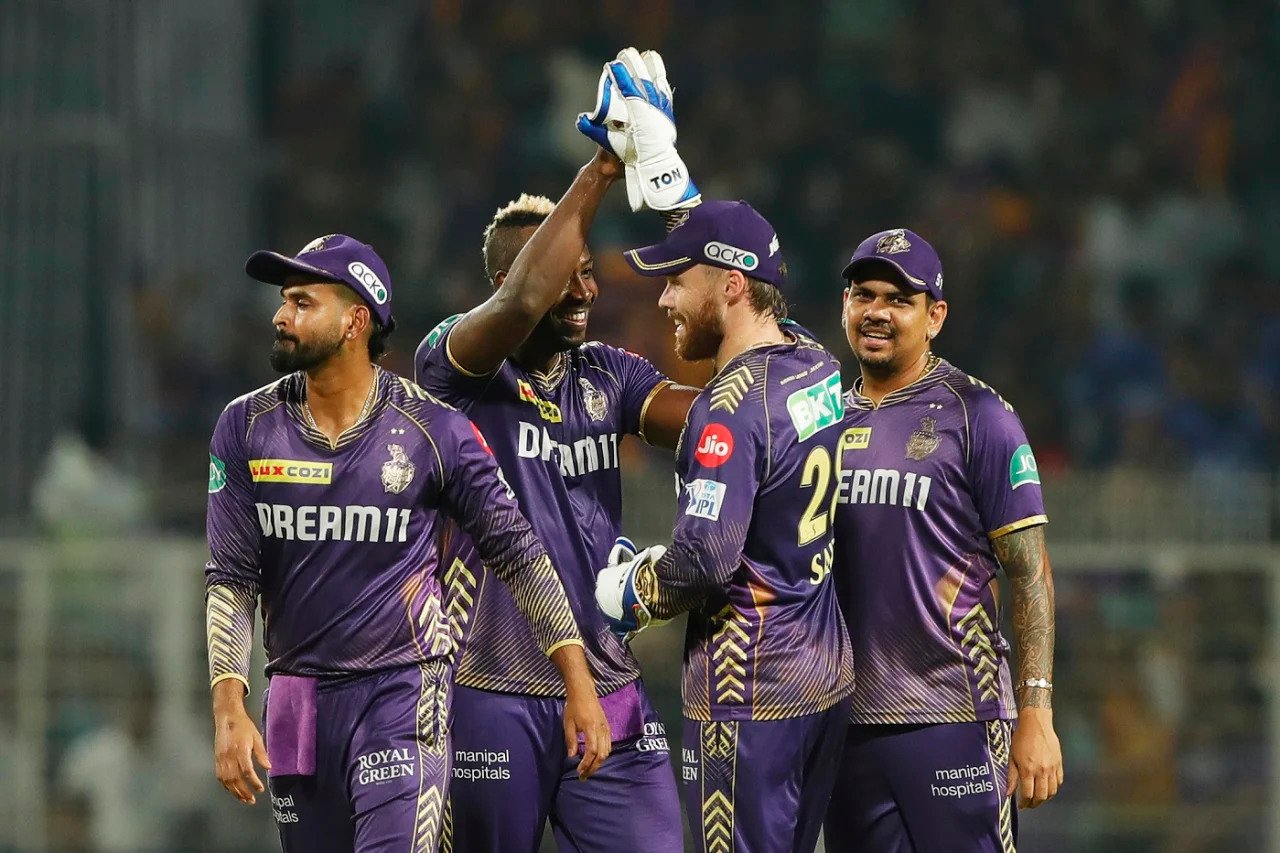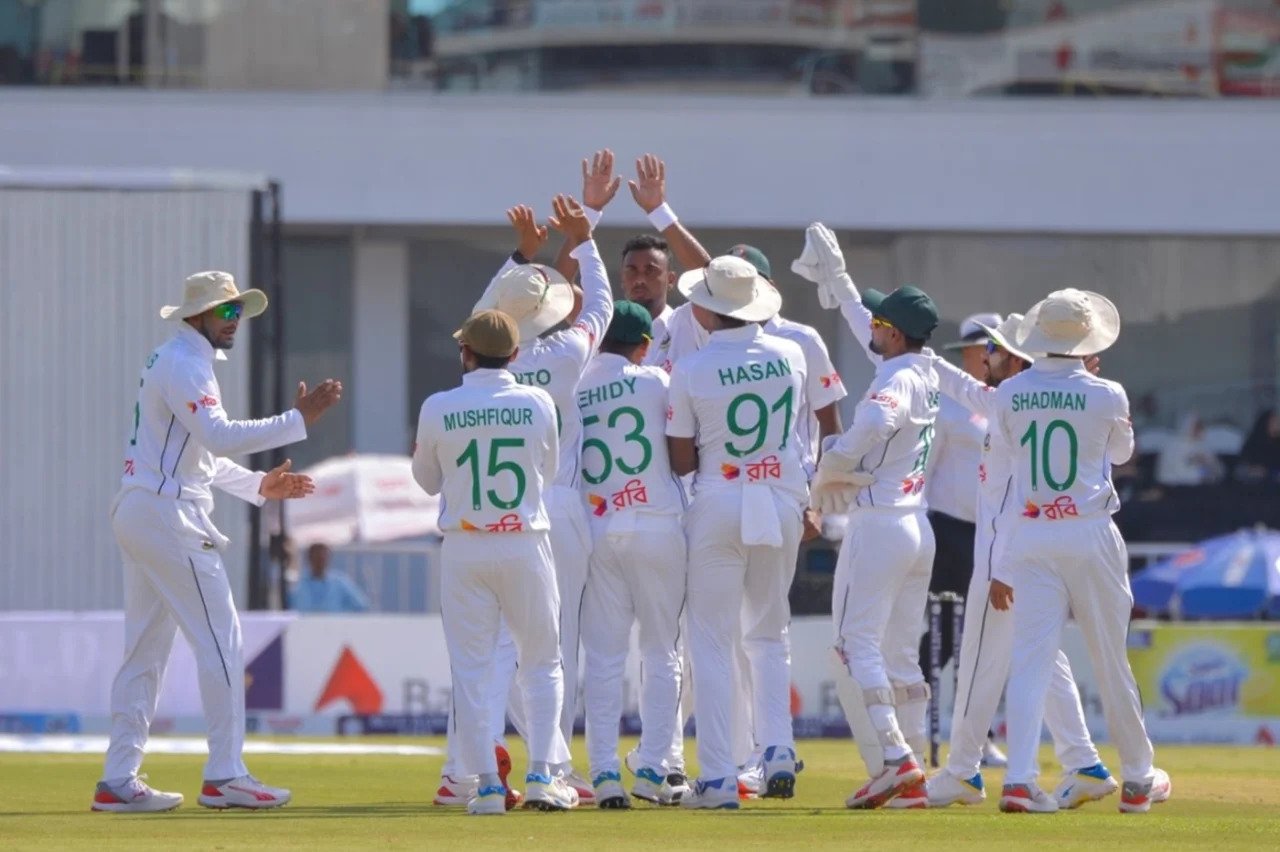Australia vs England: The 1987 Cricket World Cup Final Breakdown at Eden Gardens, Calcutta (now Kolkata), India
On November 8, 1987, Eden Gardens in Calcutta, India, hosted the 1987 ICC Cricket World Cup Final, which was sometimes referred to as the Reliance Cricket World Cup Final. Australia and England were playing for their first-ever World Cup titles, so it was a historic encounter. Australia won by a score of 7 runs, creating a historic event in cricket history in front of an estimated 70,000–90,000 spectators.

Key Performances and Match Results
Australia 253/5 (Boon 75, Veletta 45, Hemmings 2/48) beat England 246/8 (Athey 58, Lamb 45, Waugh 2/37, Border 2/38) by 7 runs.
Match Analysis
In addition to being the first World Cup to be held outside of England, the 1987 tournament also saw the first-ever 50-over per side match format and the first-ever World Cup final held somewhere other than Lord’s.
After winning the toss, Allan Border decided to bat. As they had for much of the competition, Australia got off to a great start with openers Geoff Marsh and David Boon, who scored 52 runs off the first ten overs while taking advantage of the bowling mishaps and lack of discipline of Philip DeFreitas and Gladstone Small (who gave up six no-balls).
Waugh batted with Veletta in the last over of the innings, which DeFreitas was about to bowl. Together, they scored 11 runs off it, taking Australia’s total score to 253, making history as the first side to score more than 250 against England in the competition.
There was a modicum of optimism among the Australians when they took the field because no team batting second in this World Cup had managed to chase 254. Midway through the first over, McDermott trapped Tim Robinson in front for a golden duck, which gave England a terrible start to their innings.
After captain Mike Gatting (41 from 45 balls, 3 fours, 1 six) lost his wicket to an attempted reverse sweep off the occasional off-spin bowling of Allan Border, ending a growing partnership of 69 runs in 13 overs between him and Athey, Bill Athey (58 from 103 balls, 2 fours) top-scored and England were nearly on target.
Allan Lamb too had a fantastic knock (45 from 55 balls, 4 fours), but it was in vain as England’s needed run-rate started to climb. Australia won the cup after England was unable to get the remaining 17 runs from the last over.
Road to Finals
Having lost their five previous One Day Internationals (ODIs) and their home Ashes series, Australia went into the competition as the underdog. Australia, however, made a turnaround under coach Bob Simpson’s guidance. Their triumph was largely due to the fearsome opening combination of David Boon and Geoff Marsh, as well as the explosive speed bowling of Craig McDermott, who took the most wickets (18) in the event.
Australia’s victory over Pakistan in the semi-final guaranteed them a place in the final. They scored 267/8 in 50 overs thanks to their thorough performance, which was well-anchored by Marsh and Boon. McDermott’s skill with the ball contributed to Australia’s historic victory and their first World Cup final appearance since 1975.
After Pakistan, England had an excellent campaign and placed second in Group B. Graham Gooch shone in their semi-final encounter against India at Bombay’s Wankhede Stadium, making 115 runs and won the match. India’s batting order was completely destroyed by Eddie Hemmings’ methodical bowling for England, guaranteeing their spot in the championship.
Key Moments:
- David Boon was named Player of the Match for his 75 runs, providing a strong platform for Australia’s innings.
- Craig McDermott’s early breakthrough with the wicket of Tim Robinson was pivotal.
- Mike Gatting’s reverse sweep dismissal became one of the most talked-about moments in World Cup history, as it changed the course of the match.
Steve Waugh Reflects on the 1987 Cricket World Cup: From Outsiders to Champions
At the age of 22, the future captain of Australia made a significant contribution with the ball during his maiden World Cup, particularly during a tense moment in the Eden Gardens final.

This was a watershed moment in Australian cricket history, and I have many wonderful recollections of it. We were certainly deep in the running for that tournament, having failed miserably to that point. We trained under Bob Simpson and Allan Border’s direction, put in a ton of work, and became a cohesive unit.
We had already built up a sizable fan following when we played at Eden Gardens in front of 90,000 fans who were essentially rooting for us because England had defeated India and we had defeated Pakistan in the semifinals.
Mike Veletta, who is frequently overlooked, is the player who, in my opinion, played the best innings. His innings of 45 off 31 balls was exceptional.
It was difficult to defend and we didn’t get a big total, but we bowled pretty well afterwards. Naturally, Mike Gatting reverse-swept, which at the time was a contentious move.
With perhaps two overs remaining, the game was close to being decided. I recall being under a lot of pressure when I bowled late in the innings, but I also relished the experience. I thought we could win the game if I bowled a few quality overs. So it was a wonderful, happy time for me as a cricket player. In the end, it was incredible since we didn’t think we would actually win in India. We gained some speed and completed the task.
That World Cup in India was truly the fantasy of all the World Cups I participated in.





